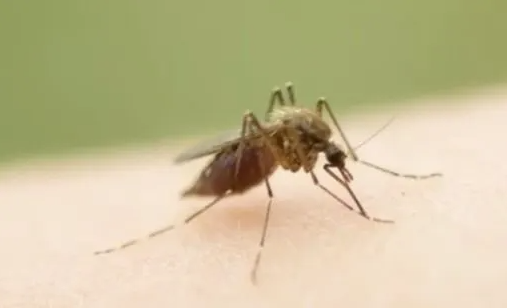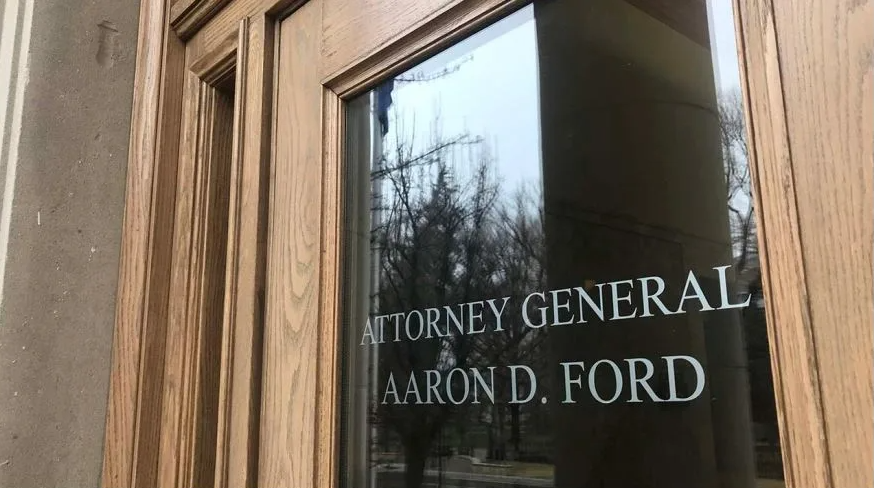UNLV study reveals alarming mosquito pesticide resistance across Las Vegas Valley

Research shows common mosquitoes surviving doses 100 times CDC recommendations
A groundbreaking study by University of Nevada, Las Vegas researchers has uncovered disturbing evidence that mosquitoes throughout the Las Vegas Valley are developing significant resistance to commonly used pesticides, potentially compromising efforts to control disease-carrying insects.
Dr. Trishan Wickramasinghe, a physician and researcher at UNLV’s Parasitology and Vector Biology Laboratory, has spent nearly two years documenting how the common mosquito species Culex quinquefasciatus has evolved to survive pesticide doses that should be lethal, raising serious public health concerns as mosquito populations surge across Southern Nevada.
“These mosquitoes I find in Clark County don’t die at 100 times the CDC-recommended dose,” Wickramasinghe explained, describing test results that show mosquitoes surviving extended exposure to deltamethrin and permethrin concentrations far exceeding standard treatment levels. “Sometimes 24 hours later, after prolonged exposure, they’re still not dying.”
Resistance spreading from Summerlin to Henderson
The research has identified pesticide-resistant mosquito populations across the valley, from upscale golf courses in Summerlin to artificial lakes in Henderson. These areas, with their abundant water features and frequent pesticide applications, have become breeding grounds for increasingly hardy mosquito populations.
The problem extends beyond just one species. Wickramasinghe’s team plans to test the more aggressive Aedes aegypti mosquito next year, a daytime-biting species that has rapidly expanded its presence in Clark County since first being detected in 2017.
“The more we spray, the more exposed mosquitoes are to pesticides, which means more immunity,” Wickramasinghe noted, explaining how repeated pesticide use without proper rotation or targeting has accelerated resistance development.
Climate change fuels mosquito explosion
The resistance crisis comes amid unprecedented mosquito activity in Southern Nevada. The Southern Nevada Health District reported that mosquito trap counts exceeded 24,000 specimens from April to June this year—a four-fold increase from the 6,000 captured during the same period last year.
Louis Messenger, assistant professor at UNLV’s School of Public Health and director of the lab, attributes the population explosion to climate change and urbanization. “We have seen rainfall, we have seen extreme highs in temperatures; all of those climatic variables are going to impact whether or not mosquitoes can breed and proliferate,” Messenger said.
Las Vegas has experienced a 6.2°F increase in average springtime temperatures since 1970, extending the mosquito breeding season and creating more favorable conditions for their survival even during extreme heat.
Growing disease threat
The resistance problem poses serious health risks as mosquito-borne diseases become more prevalent. In 2024, the health district recorded the highest West Nile virus activity in its surveillance program’s history, with 91 mosquito pools testing positive by early June. The valley also detected mosquitoes carrying St. Louis encephalitis virus for the first time since 2019.
“We now have a situation where West Nile insect vectors are thriving along with invasive species that can transmit dengue, yellow fever, and Zika,” Messenger warned. “We don’t have any of those diseases here yet in Las Vegas, but we have close to 50 million visitors that come through the doors, and we know pathogens don’t respect any borders.”
The 2019 West Nile outbreak resulted in 43 human cases and one death in Clark County, demonstrating the potential severity of mosquito-borne disease outbreaks.
Push for mosquito abatement district
The UNLV research team is advocating for the creation of a mosquito abatement district for Clark County, similar to those operating in Phoenix and Salt Lake City. Such districts provide coordinated, science-based mosquito control efforts rather than the current patchwork approach.
“We can give targeted advice for pest control agencies,” Wickramasinghe said, explaining how their research could inform more effective control strategies that rotate pesticides and target specific areas based on resistance patterns.
Currently, Clark County lacks a unified mosquito control program. The Southern Nevada Health District only conducts surveillance, not control measures, leaving abatement efforts to various municipal departments and private pest control companies operating without coordination.
What residents can do
While officials work toward long-term solutions, residents can take immediate steps to protect themselves and reduce mosquito breeding:
Eliminate standing water: Even a bottle cap of water can breed mosquitoes. Check plant saucers, toys, wheelbarrows, and pool covers regularly.
Maintain pools: Report green or neglected pools to local code enforcement. Stagnant pools are prime breeding grounds.
Personal protection: Use EPA-registered repellents, wear long sleeves and pants during peak mosquito hours (dawn and dusk for Culex, daytime for Aedes).
Report activity: Contact the health district’s Mosquito Surveillance Program at 702-759-1633 to report unusual mosquito activity.
Community action needed
Las Vegas homeowner Mehdi Zarhloul has noticed the increase firsthand. “This year we’ve kind of seen an increase in mosquitoes,” he said, emphasizing the importance of proper plant watering and eliminating standing water around properties.
Messenger stressed that individual efforts alone won’t solve the problem. “The problem is once mosquito populations are established in a given environment, it’s really difficult to get rid of them,” she said. “If you’ve got one person with an untreated, stagnant swimming pool on the end of the road, they’re just gonna be seeding mosquitoes back into the community.”
The research team is conducting a community survey to gauge public support for a mosquito abatement program, including whether taxpayers would accept a small fee for coordinated mosquito control services.
As Las Vegas continues to grow and climate patterns shift, the mosquito resistance crisis represents a critical test of the community’s ability to adapt to emerging public health challenges. Without coordinated action, researchers warn, the problem will only worsen.
Image Source: https://www.yahoo.com/news/articles/unlv-researchers-warn-rising-mosquito-233613723.html
Category: Health
Subcategory: Public Health
Date: 07/23/2025


